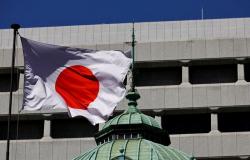
“The kitchen of Argentine economic policy, from Frondizi to Milei” is the new book by the economist who is most listened to these days Javier Milei, Juan Carlos de Pablo.
Both consider themselves friends and share dinners at Quinta de Olivos, although De Pablo never makes direct reference to what is discussed in those meetings. Milei often makes public mentions about the economist, whom she calls “professor.”
“You don’t have to be a graduate in economics to understand the text. Its value consists in highlighting the description and analysis of the ‘kitchen’ of Argentine economic policy, faced in international scenarios and specific political contexts. Which includes, in a leading way, the decision-making process carried out by the political authorities and the economic teams of the different governments,” De Pablo wrote in the prologue.
The work – which Sudamericana published – is a dialogue between De Pablo and Ezequiel Burgo, economist and editor of the Clarín newspaper. Below is an excerpt from the final part of the book that addresses the first months of Milei’s management.
EB: On December 10, 2023, he assumed Javier Milei as president. in your book Professional golden weddings, published in 2014, you cited Milei in a long list of colleagues with whom, according to you, you developed a friendship. You said about him: “We began to talk about the work of Miguel Sidrauski. Fiery, very hard-working, in recent years he is the colleague with whom I have lunch most frequently.” What do you think?
JCDP: The first thing we have to do, Ezequiel, is date this conversation. We are talking about the end of March 2024, and these pages will be read, at best, in June. You can imagine our audacity to talk about something that will be printed in three months, so we ask for charity, because this is Argentina. One has to say several things. First, Argentina has a presidential regime. If he is not assassinated, if he does not have a heart attack, if he does not resign or if he is not impeached, Milei will be president until December 10, 2027. And essentially he will have a big test in October 2025. The rest should not have much importance. Second, experience tells me that styles do not change. People know that I am a friend of Milei and they advise me: “Listen to me, Juan Carlos, when you see him, why don’t you tell him to calm down?” And I respond: “And you tell me that I wear a tie. “You like to waste time.” It will not change the style, but it will accept modifications or different points of view, always within its forms. I don’t see him as crazy or idiotic enough not to do it. Third, at the beginning of his presidency, Milei used the fact of being a global phenomenon to his advantage. He picked up the phone and spoke to whoever he wanted. What was he used for? To position Argentina in a world that has a phenomenal upheaval. A few years ago a pandemic, then Russia’s invasion of Ukraine, the conflict in Gaza and so on. I repeat, today’s world is very uncertain.
EB: He is the first Argentine president with a degree in Economics. His economy minister is Luis Caputowho had been Minister of Finance with Mauricio Macri and later president of the Central Bank. What can we say?
JCDP: It started with a recession and lower inflation. The economic policy launched is absolutely simple and brutal, because it does not have many tools. There’s no money. The difference between there is no money and there is a little money is categorical.
EB: It’s like the difference between 0 and 1… abysmal.
JCDP: Clear. When you say “there is no money”, once convinced, people do not ask for more money. But when you say “there is money”, you will see that everyone quickly signs up. From that point of view, Argentina getting fresh money from the IMF or the US government is going to be a problem. It is difficult to sustain that pressure even when the president of the nation assures and swears that the money “is not for spending.” It’s very complicated.
EB: What worries you about the orientation of the first measures?
JCDP: I like to say that in Argentina things are fluid. But if the country becomes moderately credible and a kind of Dutch disease is generated, that is not good…
At the beginning of his presidency, Milei used the fact of being a global phenomenon to his advantage. He picked up the phone and spoke to whoever he wanted. What was he used for? To position Argentina in a world that has a phenomenal mess (De Pablo)
EB: Let us explain to our readers that this is the name given to a harmful effect for a country when a lot of capital enters and the exchange rate appreciates. It happened in the Netherlands in the sixties. That is why, in Argentina, whenever the dollar lags behind the rest of the prices, it is said that there may be an exchange rate jump. We have seen it throughout history, with Martínez de Hoz, convertibility and so on.
JCDP: Making decisions about whether a devaluation jump is coming does not seem reasonable to me. But it is true that the backwardness of the dollar generates a problem, that of the Argentine cost and the increase in local products compared to everything imported.
EB: What implications does this problem have for the economic policy maker?
JCDP: Two. First, in the eyes of the government, this problem always seems not to be urgent, and when it is not the world we said that there were economist presidents, like Valéry Giscard d’Estaing, Harold Wilson and several of Peruvian origin. However, if you look at the history of those who have been great presidents, it is very difficult to know a priori, and even less so because of their training. It has a phenomenal question component, which previous attribute increases the chances that your presidency will be better. But, returning to Caputo, I believe that presidential support for a management that aims at a tough fiscal adjustment is very important. Antonio Cafiero He told me that the only reason a governor goes to see an Economy Minister is to ask for money. And the only word the minister has at hand is “no.” So, it is very important to have the president behind you, because the governor can always say to the minister: “Hey, who elected you? Because the people voted for me.”
It started with a recession and lower inflation. The economic policy launched is absolutely simple and brutal, because it does not have many tools. There is no money (De Pablo)
EB: In the campaign, Milei promised to dollarize, close the Central Bank and remove the stocks from one day to the next. Until today, that has not happened. Are you surprised it was delayed?
JCDP: No. Things in economic policy are done as soon as possible, and furthermore, I don’t think any of that is a priority. Economic policy implies priorities.
EB: But what does it tell you about him that he hasn’t done them?
JCDP: That, simply, in some of them there is no rush. When I hear people say that the stocks must be removed, I am divided between the abstract and those interested in taking money out of the country, rather than bringing it in. Don’t tell me that a guy who wants to open a dulce de leche factory in Argentina is waiting for the trap to be removed before setting up shop. It’s nonsense. The financial manager of the Argentine subsidiary of a multinational must be desperate to transfer dollars, after four years in which he was unable to access those funds.
EB: Is having campaigned saying that he would close the Central Bank or dollarize an example that if Milei said otherwise he would not win?
JCDP: I think he’s pretty much living up to what he said, and from that point of view it’s weird. And, in any case, she can say: “Look what I found.” Now, it is also important to know something else. If you said something in the campaign and it no longer has anything to do with reality, and you become a slave to what you said, then you are part of the problem. The reality is so dramatic and bloody that you cannot say: “Because as I once said or promised…”





